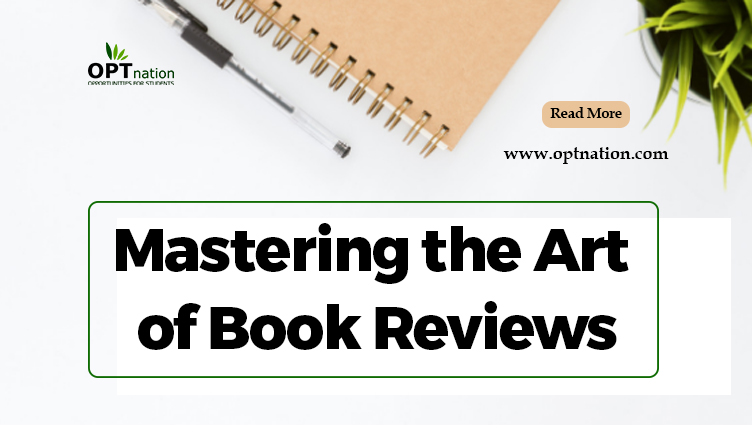Book evaluations are essential to the success of a publishing in the broad literary world of today. These perceptive criticisms help writers by offering helpful input, assisting prospective readers in their book choices, and affecting the reputation of a literary work as a whole. However, it may be difficult for prospective reviewers to create an engaging book review that achieves the perfect mix between objectivity and subjectivity.
This is where a book review writing service comes into the picture. Both seasoned reviewers and those just venturing into the field of literary analysis may benefit greatly from a professional writing service dedicated to the technique of composing book reviews.
Understanding the Purpose of Book Reviews
Understanding the genuine value and relevance of book reviews in the world of literature is crucial before exploring the advantages of a book review writing service. Book evaluations perform a number of vital roles that have an effect on different literary community stakeholders.
1. Informing Potential Readers
Book reviews act as literary signposts for prospective readers, guiding them toward books that align with their interests and preferences. A well-written review provides a concise summary of the book’s plot, genre, and overall theme, helping readers decide whether the book is worth their time and investment.
2. Providing Constructive Feedback to Authors
Authors greatly value book reviews as they offer valuable insights into how their work is perceived by readers and critics alike. Constructive feedback from reviews can help authors identify strengths and weaknesses in their writing, plot development, characterizations, and overall storytelling.
3. Influencing Book Sales and Success
Positive reviews can significantly boost a book’s visibility and sales, potentially propelling it to bestseller status. On the other hand, negative reviews might prompt potential readers to reconsider their purchase, highlighting the impact that well-crafted reviews can have on a book’s success.
4. Fostering Literary Discussions
Book reviews often serve as a starting point for engaging discussions and debates among readers. Different perspectives shared in reviews can generate thoughtful conversations about the book’s themes, messages, and interpretations.
5. Guiding Publishers and Booksellers
Book reviews are also valuable to publishers and booksellers, who rely on them to assess market demand and make informed decisions about book promotions, marketing strategies, and distribution plans.
6. Preserving Literary History
Book reviews contribute to the preservation of literary history. They provide snapshots of how a book was received during its time and offer future generations insights into the literary trends and tastes of the past.
Elements of a Stellar Book Review
It takes skill to strike the right mix between analysis, creativity, and introspection while writing a book review. A well-written review should give useful insights that appeal to prospective readers in addition to giving readers a look into the book’s substance. The following are the essential components of a great book review:
● Succinct Book Summary
Begin your review with a brief, spoiler-free summary of the book’s plot, setting, and central themes. This summary should provide enough context to engage readers without giving away crucial plot twists or surprises.
● Thoughtful Analysis of Characters and Plot
Evaluate the book’s characters and their development throughout the narrative. Discuss their motivations, complexities, and how they contribute to the overall story. Additionally, analyze the plot’s pacing, structure, and any twists that enhance the reading experience.
● Assessment of Writing Style and Language
Examine the author’s writing style, noting whether it is descriptive, poetic, humorous, or pragmatic. Pay attention to the use of language, literary devices, and dialogue, as these elements contribute to the book’s overall tone and impact.
● Personal Reactions and Reflections
Share your personal reactions to the book and explain how it made you feel. Did it evoke strong emotions, provoke thought, or challenge your perspectives? Discuss any connections you may have drawn between the book and your own experiences or beliefs.
● Target Audience and Recommendations
Identify the target audience for the book and assess how effectively the author engages this demographic. Recommend the book to specific readers who might appreciate its themes, genre, or writing style.
Challenges Faced by Aspiring Book Reviewers
As appealing as writing book reviews may seem, aspiring reviewers often encounter several challenges on their literary journey. These hurdles can impede the creation of thoughtful and impactful reviews. Some of the common challenges faced by those trying to master the art of book reviewing include:
● Time Constraints: Writing comprehensive book reviews requires time and dedication. Aspiring reviewers may find it challenging to balance their reviewing pursuits with other personal or professional commitments.
● Finding the Right Words: Expressing complex thoughts and emotions about a book in a clear and coherent manner can be daunting. Reviewers may struggle to find the right words to convey their thoughts effectively.
● Balancing Objectivity and Subjectivity: Achieving the right balance between providing an objective analysis of a book’s merits and expressing subjective reactions can be difficult. Reviewers may grapple with how much personal opinion to include while maintaining a fair evaluation.
● Limited Writing Experience: Those new to writing may lack the confidence or writing skills necessary to craft engaging and persuasive book reviews.
Conclusion
As a means of connecting writers, readers, and the greater literary community, book reviews have a significant role in the literary world. Writing a captivating book review writing service means striking a careful balance between describing the story, dissecting the characters and writing style, sharing personal observations, and making insightful suggestions to prospective readers. But prospective book reviewers often struggle with a variety of issues, such as time restraints, finding the appropriate words, and striking a balance between objectivity and subjectivity.
The art of book reviewing, when supported by a reputable writing service, opens up new opportunities for enhancing the world of literature and adding to its enduring legacy, regardless of whether you are an author looking for insightful criticism or an avid reader eager to share your insights.

